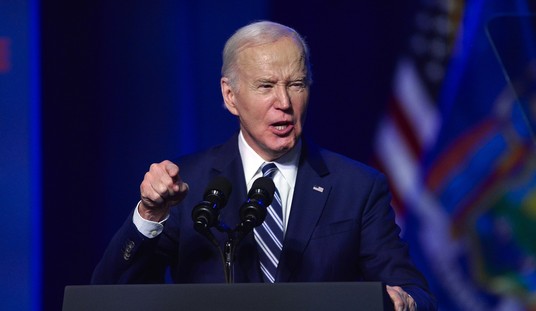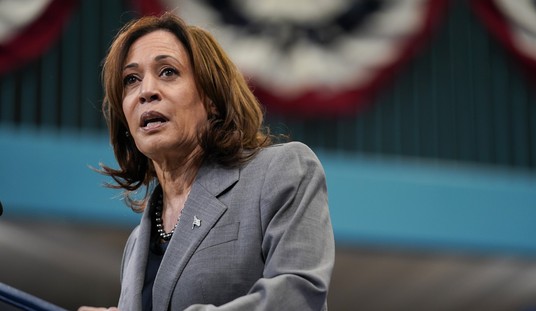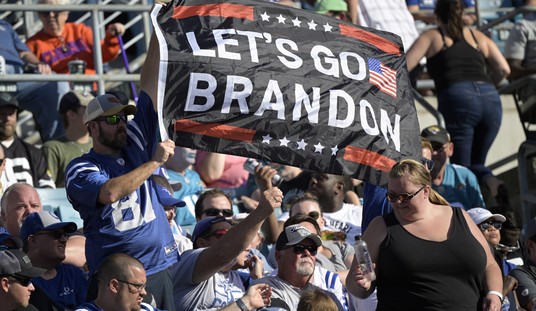
the Morning Briefing every morning at no charge.
1. Nothing’s Shocking
2. $16.4 Trillion in Debt By End of Year
3. Why Mitt Romney’s Electability is Not Inevitable
4. Why is the GOP Florida Legislature Trying to Screw Allen West?
5. What’s Wrong with Peak Oil Theory? Consider ‘Peak Gas’.
1. Nothing’s Shocking
It is a sad commentary on the state of our world that stories like this one (warning, .pdf) (via the Population Research Institute) barely shock us anymore. The gist of the story is as follows: a Massachusetts woman, identified in court pleadings only as Mary Moe, is pregnant with her third child. She aborted her first child. Sometime between this abortion and the birth of her second child, she suffered a “psychotic break” and was diagnosed with shizophrenia and bipolar mood disorder, for which she takes medication. Reading inbetween the lines, it is reasonable to assume that the woman’s first abortion may have been a contributing factor in her mental illness.Please click here for the rest of the post.
2. $16.4 Trillion in Debt By End of Year
So this is what the “age of budget austerity” looks like?Yesterday, the Senate voted against a measure to disapprove of Obama’s request for an additional $1.2 trillion of debt. Every Democrat (except for Ben Nelson and Joe Manchin) voted against the resolution. Consequently, pursuant to the Budget Control Act (the “debt ceiling deal”), Obama will automatically get his new credit card. Our debt will increase by another $1.2 trillion, topping $16.4 trillion by the end of the year.Here are the relevant numbers that should define Obama’s presidency, yet they will not be disseminated in the major media. When Obama took office, the total federal debt stood at $10.6 trillion. By the end of his first term, the debt will be at least $16.4 trillion, an increase of $5.8 trillion. To put that in perspective, it took us until late 2001 (from our nation’s founding) to accrue $5.8 trillion in debt. Even President Bush, who was a big-spending Republican, racked up “only” $4.9 trillion over 8 years.Please click here for the rest of the post.
3. Why Mitt Romney’s Electability is Not Inevitable
After many months of getting a pass, it seems that the other candidates are willing to finally start hitting Governor Mitt Romney on his major weakness: The Massachusetts Health Care Insurance Reform Law. The bill, known by most as Romneycare, is (as we all have been saying for many moons) the basis for the much maligned Patient Protection and Affordable Care Act, otherwise affectionately known as Obamacare.I’ve been in endless debates and discussions with Romney supporters and surrogates for some time now as they paint a beautiful picture of the ultimate State’s Rights battle. They claim that Romneycare vs Obamacare isn’t about socialized medicine vs the free market. They say it’s actually the core of the Federalist struggle and that Romney will channel Mr. Smith Goes to Washington and march onto the capital steps, fulfilling the dreams and desires of tea partiers nationwide by finally standing up and saying, “Enough is enough! Let the state’s make their decisions Obama! Your days of tyranny are at an end!” And they all rejoiced.Yet, continually when Romney is approached on this subject in the debates with fellow Republicans, he seems incapable of defending any other point and seems befuddled at the idea that there might be more than one part about Obamacare that American’s had wholly objected to. For him, it’s all about the mandate.But it’s important to keep in mind, Mitt Romney does not object to the concept of mandates. Far from it actually.Please click here for the rest of the post.
4. Why is the GOP Florida Legislature Trying to Screw Allen West?
As an outspoken black conservative with a high national profile, Allen West already had a huge national target painted on his back going in to 2012. As part of reapportionment as a result of the 2010 census, Florida gained 2 Congressional seats. Despite that, it appears that the Republican-controlled Florida legislature seems to have somehow managed to make Allen West’s seat much more difficult to defend.Please click here for the rest of the post.
5. What’s Wrong with Peak Oil Theory? Consider ‘Peak Gas’.
In 1956, M. King Hubbert predicted that crude oil production in the U.S. (ex-Alaska) would peak in rate around 1970, to be followed by a long, irreversible decline. Hubbert nailed the timing of the peak, and in doing so, cemented his status as a technological visionary among neo-Malthusians and opponents of the “fossil fuels”. But Hubbert’s paper also contained a similar forecast for gas.In 1956, Hubbert’s estimate of the amount of natural gas that would ultimately be consumed in the U.S. was 850 trillion cubic feet (TCF).In the 1978 update, Hubbert increased his estimate to 1,103 TCF, but considered that value to be on the high side.By the end of 2010, we had produced and marketed 1,131 TCF from the Lower 48, more gas than Hubbert thought would ever be possible. We find ourselves in the midst of a natural gas boom, with gas production now exceeding the peaks of 1973: rates are over three times higher than the 7 TCF per year Hubbert foresaw for 2010. The Lower 48 resource base is some 3,100 TCF, three to four times Hubbert’s earlier estimates.Peak Oilers rarely mention Peak Gas. Hubbert expected his method to work for all resources; why did it fail with respect to gas? The answers to that question shed light on the shortcomings of Peak Oil Theory, and reveal the reasons why it should not be used as a policy-making tool.Please click here for the rest of the post.














Join the conversation as a VIP Member